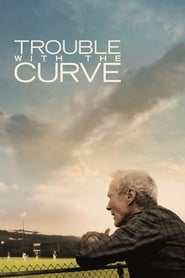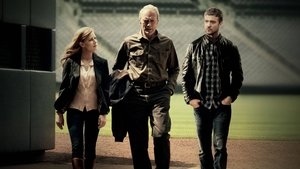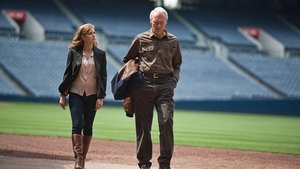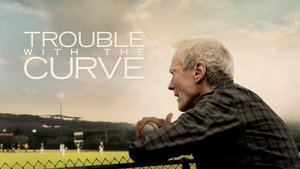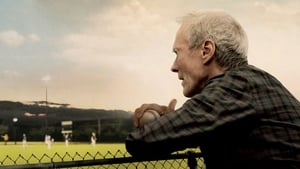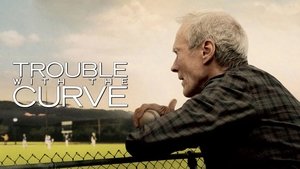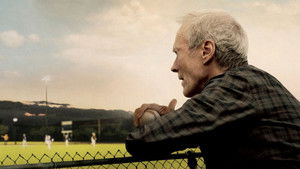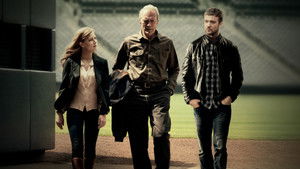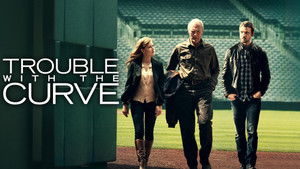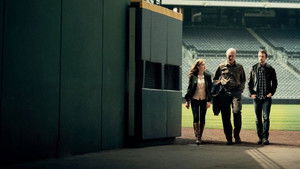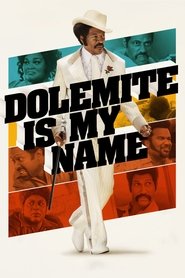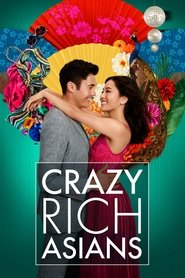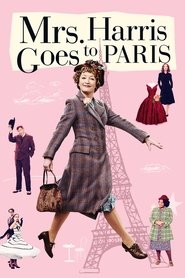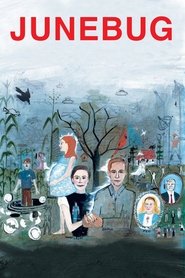Just like a minor league ball player awaiting his chance to make it to the big leagues, first time director Robert Lorenz has been preparing for this opportunity his whole life. Constantly playing second fiddle to Clint Eastwood as the "Assistant Director" on hits such as Million Dollar Baby, Mystic River and The Bridges of Madison County, Lorentz has finally been given his chance and he'll step up to the plate with this year's drama Trouble with the Curve.
Trouble with the Curve follows Gus Lobel (played by Eastwood), an elderly baseball scout in the twilight of his career. In an age where computers and statistics have taken over the analysis of ballplayers, Gus is given one last shot by his employer, the Atlanta Braves, to scout this year's most highly touted prospect. But with an expiring contract and a recent diagnosis of glaucoma, Gus' eyes may not be good enough to help him keep his job. With the aid of his somewhat distant daughter Mickey (played by Adams) and a former ballplayer turned scout Johnny Flanagan (played by Timberlake), Gus and the pair of youngsters must learn to hit any pitch that life throws their way.

Trouble with the Curve is a melodramatic piece that fails to live up to the legendary status of a big named star like Clint Eastwood. Taking the favorable position of scouting over the newly installed ideas of saber-metrics within professional baseball, Trouble with the Curve sets itself up as the anti-Moneyball. Claiming that a computer can't measure instincts and countless other undervalued variables, the film places a central focus on the ability to see beyond the game. And while avid baseball fans like myself can find a modest level of enjoyment by having the sport as a backdrop to the film's larger story, Trouble with the Curve tip-toes around confronting its major conflict for far too long. Once the big secret behind the broken down relationship between Gus and Mickey is finally revealed, it ends up feeling like an "I've waited all this time for that?" moment. But perhaps the feature's biggest saving grace comes in the form of Justin Timberlake. The singer turned actor has made a natural transformation to the big screen and his success only continues. At times, Timberlake's character Johnny Flanagan appears to be the only reasonable person in the movie. Playing a former phenom who could light up the radar gun with a triple digit fastball, Timberlake portrays Flanagan with an honest sense of humility. Flanagan makes his way into scouting after a devastating injury ends his career, and the audience easily connects with the character's admitted failure and quest for a new beginning. Without the aid of Timberlake and his multi-dimensional character, Trouble with the Curve would fall far into the abyss of mediocrity.

One of the most shocking revelations in Trouble with the Curve is the stunning real life parallel between Clint Eastwood and his onscreen character of Gus Lobel. Lobel is an aging man being forced out of his profession for a lack of fresh perspective. And ironically speaking, Eastwood's performance picks up exactly where his Walt Kowalski character from Gran Torino left off. Offering nothing new to the curmudgeony role he perfected so well in 2008, Eastwood proves to be a major disappointment in the film. Sure his light-hearted old fogey jokes will garner a few laughs, but they all manage to feel slightly recycled. On the other hand, Oscar nominee Amy Adams delivers another stellar performance. But despite her valiant efforts, director Robert Lorenz and screenwriter Randy Brown ultimately mishandle her story. Once the audience buys into her romantic escapades with the charming Johnny Flanagan, they force a conflict into the film that is never seemingly resolved. However, when we're given an unexplained and unbelievable fairy-tale ending, the sentiment becomes almost sickening.
Trouble with the Curve is far from the Oscar-filled hopeful that some early indicators believed it could be. And although the film is massively flawed and unrealistic, Trouble with the Curve is a feel good movie about the greatest game on earth ... so how bad can it be? There are definitely some noticeable lulls throughout the movie, but the budding romance and regularly calculated jokes do their intended job. As a result, Trouble with the Curve is an ever-so-slightly above average drama that you don't have to rush to theatres to see.
-
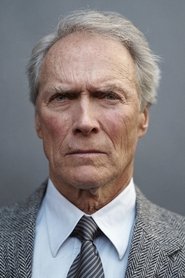 NameClint EastwoodCharacterGus Lobel
NameClint EastwoodCharacterGus Lobel -
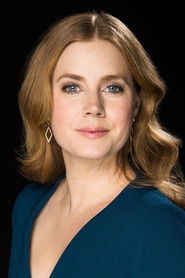 NameAmy AdamsCharacterMickey Lobel
NameAmy AdamsCharacterMickey Lobel -
 NameJustin TimberlakeCharacterJohnny Flanagan
NameJustin TimberlakeCharacterJohnny Flanagan -
 NameMatthew LillardCharacterPhillip Sanderson
NameMatthew LillardCharacterPhillip Sanderson -
 NameJack GilpinCharacterSchwartz
NameJack GilpinCharacterSchwartz -
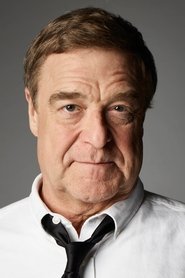 NameJohn GoodmanCharacterPete Klein
NameJohn GoodmanCharacterPete Klein -
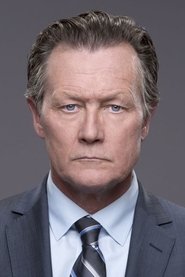 NameRobert PatrickCharacterVince
NameRobert PatrickCharacterVince -
 NameScott EastwoodCharacterBilly Clark
NameScott EastwoodCharacterBilly Clark -
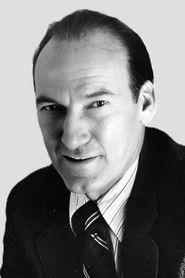 NameEd LauterCharacterMax
NameEd LauterCharacterMax -
 NameChelcie RossCharacterSmitty
NameChelcie RossCharacterSmitty -
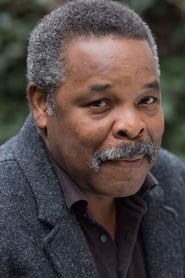 NameRaymond Anthony ThomasCharacterLucious
NameRaymond Anthony ThomasCharacterLucious -
 NameMatt BushCharacterDanny
NameMatt BushCharacterDanny -
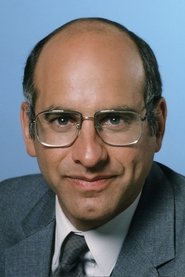 NameGeorge WynerCharacterRosenbloom
NameGeorge WynerCharacterRosenbloom -
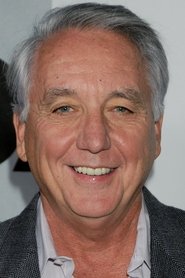 NameBob GuntonCharacterWatson
NameBob GuntonCharacterWatson -
 NameTom DreesenCharacterRock
NameTom DreesenCharacterRock -
 NameJames Patrick FreetlyCharacterTodd
NameJames Patrick FreetlyCharacterTodd -
 NameJoe MassingillCharacterBo Gentry
NameJoe MassingillCharacterBo Gentry -
 NamePeter HermannCharacterGreg
NamePeter HermannCharacterGreg -
 NameJay GallowayCharacterRigo Sanchez
NameJay GallowayCharacterRigo Sanchez -
 NameSammy BlueCharacterMusician
NameSammy BlueCharacterMusician -
 NameNorma AlvarezCharacterGrace Sanchez
NameNorma AlvarezCharacterGrace Sanchez -
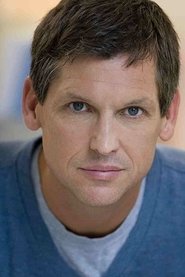 NameRus BlackwellCharacterRick
NameRus BlackwellCharacterRick -
 NameJosh WarrenCharacterPitcher
NameJosh WarrenCharacterPitcher -
 NameSeth MeriwetherCharacterWilson
NameSeth MeriwetherCharacterWilson -
 NameBart HansardCharacterBo's Father
NameBart HansardCharacterBo's Father -
 NamePatricia FrenchCharacterDiner Waitress
NamePatricia FrenchCharacterDiner Waitress -
 NameTom NowickiCharacterRed Sox GM
NameTom NowickiCharacterRed Sox GM -
 NameJulia WaltersCharacterYoung Mickey
NameJulia WaltersCharacterYoung Mickey -
 NameTyler SilvaCharacterCarlos Sanchez
NameTyler SilvaCharacterCarlos Sanchez -
 NameDarren Le GalloCharacterNurse
NameDarren Le GalloCharacterNurse -
 NameClayton LandeyCharacterManager
NameClayton LandeyCharacterManager -
 NameMatthew BradyCharacterSwannanoa Manager
NameMatthew BradyCharacterSwannanoa Manager -
 NameJackie PruchaCharacterSecretary
NameJackie PruchaCharacterSecretary -
 NameRicky MuseCharacterJimmy
NameRicky MuseCharacterJimmy -
 NameCarla FisherCharacterLaw Receptionist
NameCarla FisherCharacterLaw Receptionist -
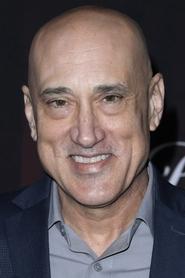 NameKenny AlfonsoCharacterUmpire
NameKenny AlfonsoCharacterUmpire -
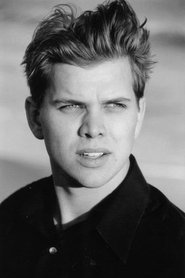 NameBrian F. DurkinCharacterMatt Nelson
NameBrian F. DurkinCharacterMatt Nelson -
 NameNathan M. WrightCharacterDrunk Fan
NameNathan M. WrightCharacterDrunk Fan -
 NameRyan Patrick WilliamsCharacterGrizzly Player #1
NameRyan Patrick WilliamsCharacterGrizzly Player #1 -
 NameXavier FloydCharacterGrizzly Player #2
NameXavier FloydCharacterGrizzly Player #2 -
 NameBud SeligCharacterHimself
NameBud SeligCharacterHimself -
 NameCara MantellaCharacterAssistant
NameCara MantellaCharacterAssistant -
 NameJennifer Baskette-RidingsCharacterNews Reporter (uncredited)
NameJennifer Baskette-RidingsCharacterNews Reporter (uncredited) -
 NameKaren CeesayCharacterCarol (uncredited)
NameKaren CeesayCharacterCarol (uncredited) -
 NameMark MeekinsCharacterBit
NameMark MeekinsCharacterBit -
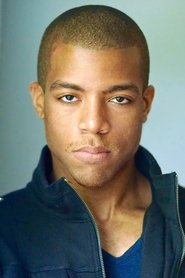 NameMoses J. MoseleyCharacterBaseball Fan (uncredited)
NameMoses J. MoseleyCharacterBaseball Fan (uncredited) -
 NameClifton GutermanCharacterNeil
NameClifton GutermanCharacterNeil -
 NameSam CollinsCharacterKid #1
NameSam CollinsCharacterKid #1 -
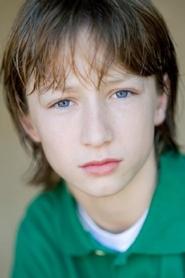 NameChandler George BrownCharacterKid #2
NameChandler George BrownCharacterKid #2 -
 NameLouis FoxCharacterLloyd
NameLouis FoxCharacterLloyd -
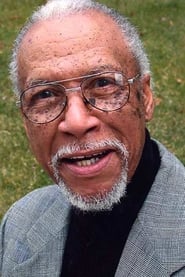 NameLeon LamarCharacterRegular #2
NameLeon LamarCharacterRegular #2 -
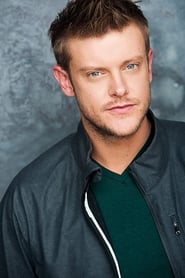 NameDane DavenportCharacterWaiter #1
NameDane DavenportCharacterWaiter #1 -
 NameEric MendenhallCharacterWaiter #2
NameEric MendenhallCharacterWaiter #2 -
 NameMelissa LorenzCharacterMom in Diner
NameMelissa LorenzCharacterMom in Diner -
 NameRory LorenzCharacterGirl in Diner
NameRory LorenzCharacterGirl in Diner -
 NameJack LorenzCharacterBoy in Diner
NameJack LorenzCharacterBoy in Diner -
 NameRhubarb JonesCharacterAnnouncer #2
NameRhubarb JonesCharacterAnnouncer #2 -
 NameScott EstepCharacterUmpire
NameScott EstepCharacterUmpire -
 NameJason S. GondekCharacterRed Sox Exec
NameJason S. GondekCharacterRed Sox Exec -
 NameMark ThomasonCharacterBraves Official
NameMark ThomasonCharacterBraves Official -
 NameHunter ClowdusCharacterYoga Student (uncredited)
NameHunter ClowdusCharacterYoga Student (uncredited) -
 NameDon YoungCharacterRegular #1
NameDon YoungCharacterRegular #1
-
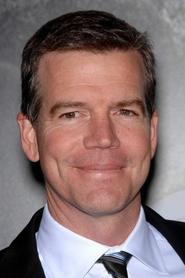 NameRobert LorenzJobDirector
NameRobert LorenzJobDirector -
 NameMarco BeltramiJobOriginal Music Composer
NameMarco BeltramiJobOriginal Music Composer -
 NameRandy BrownJobScreenplay
NameRandy BrownJobScreenplay -
 NameGeoffrey MiclatJobCasting
NameGeoffrey MiclatJobCasting -
 NameJames J. MurakamiJobProduction Design
NameJames J. MurakamiJobProduction Design -
 NameSteve RileyJobSpecial Effects
NameSteve RileyJobSpecial Effects -
 NameJohn McAlaryJobCasting
NameJohn McAlaryJobCasting -
 NameEve StregerJobCasting
NameEve StregerJobCasting -
 NameClint EastwoodJobProducer
NameClint EastwoodJobProducer -
 NameRobert LorenzJobProducer
NameRobert LorenzJobProducer -
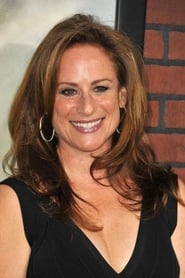 NameMichele WeislerJobProducer
NameMichele WeislerJobProducer -
 NameTim MooreJobExecutive Producer
NameTim MooreJobExecutive Producer -
 NameTom SternJobDirector of Photography
NameTom SternJobDirector of Photography -
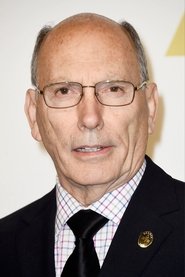 NameJoel CoxJobEditor
NameJoel CoxJobEditor -
 NameGary D. RoachJobEditor
NameGary D. RoachJobEditor -
 NameKeith BernsteinJobStill Photographer
NameKeith BernsteinJobStill Photographer -
 NameRoss DunkerleyJobGaffer
NameRoss DunkerleyJobGaffer -
 NameKevin MurrayJobAssistant Sound Editor
NameKevin MurrayJobAssistant Sound Editor -
 NameDeborah HopperJobCostume Design
NameDeborah HopperJobCostume Design -
 NameTim MooreJobUnit Production Manager
NameTim MooreJobUnit Production Manager -
 NameDavid M. BernsteinJobFirst Assistant Director
NameDavid M. BernsteinJobFirst Assistant Director -
 NamePaula CaseJobSecond Assistant Director
NamePaula CaseJobSecond Assistant Director -
 NamePatrick M. Sullivan Jr.JobSupervising Art Director
NamePatrick M. Sullivan Jr.JobSupervising Art Director -
 NameGary FettisJobSet Decoration
NameGary FettisJobSet Decoration -
 NameMable Lawson-McCraryJobScript Supervisor
NameMable Lawson-McCraryJobScript Supervisor -
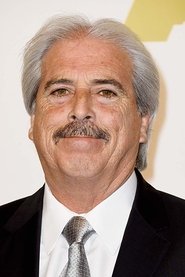 NameAlan Robert MurrayJobSupervising Sound Editor
NameAlan Robert MurrayJobSupervising Sound Editor -
 NameBub AsmanJobSupervising Sound Editor
NameBub AsmanJobSupervising Sound Editor -
 NameChris McGearyJobMusic Editor
NameChris McGearyJobMusic Editor -
 NameStephen S. CampanelliJobCamera Operator
NameStephen S. CampanelliJobCamera Operator -
 NameBill CoeJobFirst Assistant Camera
NameBill CoeJobFirst Assistant Camera -
 NameBobby McMahanJobSecond Assistant Camera
NameBobby McMahanJobSecond Assistant Camera -
 NameTrevor Carroll-CoeJobCamera Loader
NameTrevor Carroll-CoeJobCamera Loader -
 NameWalt MartinJobSound Mixer
NameWalt MartinJobSound Mixer -
 NameJonathan FuhJobBoom Operator
NameJonathan FuhJobBoom Operator -
 NameGail Carroll-CoeJobBoom Operator
NameGail Carroll-CoeJobBoom Operator -
 NameCha BlevinsJobCostume Supervisor
NameCha BlevinsJobCostume Supervisor -
 NameMitzi HaralsonJobCostumer
NameMitzi HaralsonJobCostumer -
 NameTangi CrawfordJobKey Costumer
NameTangi CrawfordJobKey Costumer -
 NameCorey BronsonJobSet Costumer
NameCorey BronsonJobSet Costumer -
 NameAnn CulottaJobSet Costumer
NameAnn CulottaJobSet Costumer -
 NameMitchell Ray KenneyJobCostumer
NameMitchell Ray KenneyJobCostumer -
 NameBranden MarksJobCostumer
NameBranden MarksJobCostumer -
 NameHeather SeaseJobCostumer
NameHeather SeaseJobCostumer -
 NameSherrie PetersonJobCostumer
NameSherrie PetersonJobCostumer -
 NameLuisa AbelJobMakeup Department Head
NameLuisa AbelJobMakeup Department Head -
 NameJay WejebeJobKey Makeup Artist
NameJay WejebeJobKey Makeup Artist -
 NameMichelle VittoneJobMakeup Artist
NameMichelle VittoneJobMakeup Artist -
 NameDawn TurnerJobHairstylist
NameDawn TurnerJobHairstylist -
 NameCarol A. O'ConnellJobHair Department Head
NameCarol A. O'ConnellJobHair Department Head -
 NamePatricia DeHaneyJobHair Department Head
NamePatricia DeHaneyJobHair Department Head -
 NameRoss DunkerleyJobChief Lighting Technician
NameRoss DunkerleyJobChief Lighting Technician -
 NameJohn LacyJobAssistant Chief Lighting Technician
NameJohn LacyJobAssistant Chief Lighting Technician -
 NameStephen CrowleyJobRigging Supervisor
NameStephen CrowleyJobRigging Supervisor -
 NameSteve SudgeJobBest Boy Lighting Technician
NameSteve SudgeJobBest Boy Lighting Technician -
 NameGuy MichelettiJobKey Grip
NameGuy MichelettiJobKey Grip -
 NameBen D. Griffith Jr.JobBest Boy Grip
NameBen D. Griffith Jr.JobBest Boy Grip -
 NameGreg BrooksJobDolly Grip
NameGreg BrooksJobDolly Grip -
 NameAustin LapierreJobAssistant Production Coordinator
NameAustin LapierreJobAssistant Production Coordinator -
 NameTony X. DealeJobAssistant Production Coordinator
NameTony X. DealeJobAssistant Production Coordinator -
 NameCindy M. IchikawaJobArt Department Coordinator
NameCindy M. IchikawaJobArt Department Coordinator -
 NameCody WilliamsJobSecond Second Assistant Director
NameCody WilliamsJobSecond Second Assistant Director -
 NameSimeon Keri JonesJobAdditional Second Assistant Director
NameSimeon Keri JonesJobAdditional Second Assistant Director -
 NameKristin Kulyniak-DealeJobProduction Secretary
NameKristin Kulyniak-DealeJobProduction Secretary -
 NameJason S. GondekJobProduction Accountant
NameJason S. GondekJobProduction Accountant -
 NameLandon TrawnyJobAssistant Accountant
NameLandon TrawnyJobAssistant Accountant -
 NameAndrew PaulsonJobAssistant Accountant
NameAndrew PaulsonJobAssistant Accountant -
 NameJennifer Hunt PedevillaJobAssistant Accountant
NameJennifer Hunt PedevillaJobAssistant Accountant -
 NameSteven OliveraJobAssistant Accountant
NameSteven OliveraJobAssistant Accountant -
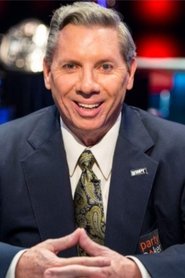 NameMike SextonJobProperty Master
NameMike SextonJobProperty Master -
 NameKevin ShawJobAssistant Property Master
NameKevin ShawJobAssistant Property Master -
 NameEliot LevinJobAssistant Property Master
NameEliot LevinJobAssistant Property Master -
 NameMichael MuscarellaJobConstruction Coordinator
NameMichael MuscarellaJobConstruction Coordinator -
 NameMatthew ButlerJobGreensman
NameMatthew ButlerJobGreensman -
 NameBrandon PopeJobGreensman
NameBrandon PopeJobGreensman -
 NameJohn HairJobGreensman
NameJohn HairJobGreensman -
 NameWilliam MonroeJobPropmaker
NameWilliam MonroeJobPropmaker -
 NamePatrick MignanoJobLocation Manager
NamePatrick MignanoJobLocation Manager -
 NameJames AshwillJobFoley Mixer
NameJames AshwillJobFoley Mixer -
 NameRichard DuarteJobFoley Mixer
NameRichard DuarteJobFoley Mixer -
 NameBlake CollinsJobFoley Mixer
NameBlake CollinsJobFoley Mixer -
 NameRyan MurphyJobMix Technician
NameRyan MurphyJobMix Technician -
 NamePatrick IngramJobExtras Casting
NamePatrick IngramJobExtras Casting -
 NameTyler KettenburgJobSet Dresser
NameTyler KettenburgJobSet Dresser -
 NameLucas GodfreyJobSet Dresser
NameLucas GodfreyJobSet Dresser -
 NameChuck McCourtJobSet Dresser
NameChuck McCourtJobSet Dresser -
 NameDaniel B. FosterJobSet Dresser
NameDaniel B. FosterJobSet Dresser -
 NamePatrick JohnsonJobSet Dresser
NamePatrick JohnsonJobSet Dresser -
 NameMargaret HungerfordJobSet Dresser
NameMargaret HungerfordJobSet Dresser -
 NameKonrad LewisJobOn Set Dresser
NameKonrad LewisJobOn Set Dresser -
 NameChristopher FlickJobFoley Editor
NameChristopher FlickJobFoley Editor -
 NameMichael DresselJobFoley Editor
NameMichael DresselJobFoley Editor -
 NameJohn T. CucciJobFoley Artist
NameJohn T. CucciJobFoley Artist -
 NameDan O'ConnellJobFoley Artist
NameDan O'ConnellJobFoley Artist -
 NameWilliam CawleyJobAssistant Sound Editor
NameWilliam CawleyJobAssistant Sound Editor -
 NameApril MackinJobAnimal Wrangler
NameApril MackinJobAnimal Wrangler -
 NameCandy CothernJobAnimal Wrangler
NameCandy CothernJobAnimal Wrangler -
 NameCherly BairdJobAnimal Wrangler
NameCherly BairdJobAnimal Wrangler -
 NameDarin McCormick-MillettJobVisual Effects Producer
NameDarin McCormick-MillettJobVisual Effects Producer -
 NamePhillip FeinerJobVisual Effects Supervisor
NamePhillip FeinerJobVisual Effects Supervisor -
 NameMichael OwensJobVisual Effects Supervisor
NameMichael OwensJobVisual Effects Supervisor -
 NameJill BogdanowiczJobDigital Colorist
NameJill BogdanowiczJobDigital Colorist -
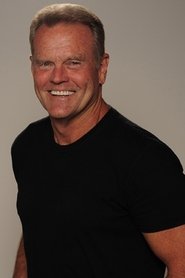 NameLonnie R. Smith Jr.JobStunt Coordinator
NameLonnie R. Smith Jr.JobStunt Coordinator -
 NameCal JohnsonJobStunts
NameCal JohnsonJobStunts -
 NameAlex DukeJobStunts
NameAlex DukeJobStunts -
 NameAnderson MartinJobStunts
NameAnderson MartinJobStunts -
 NameRobert BrubakerJobStunts
NameRobert BrubakerJobStunts


